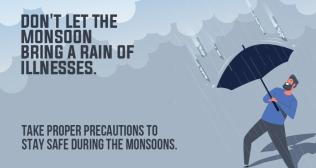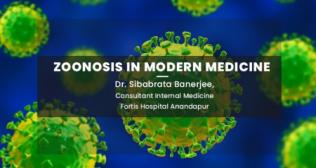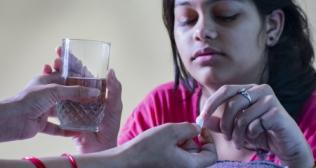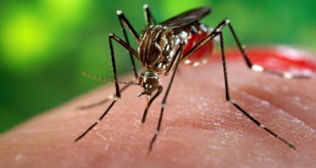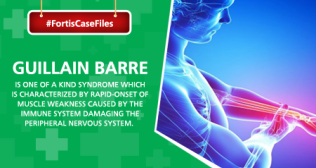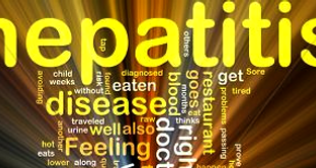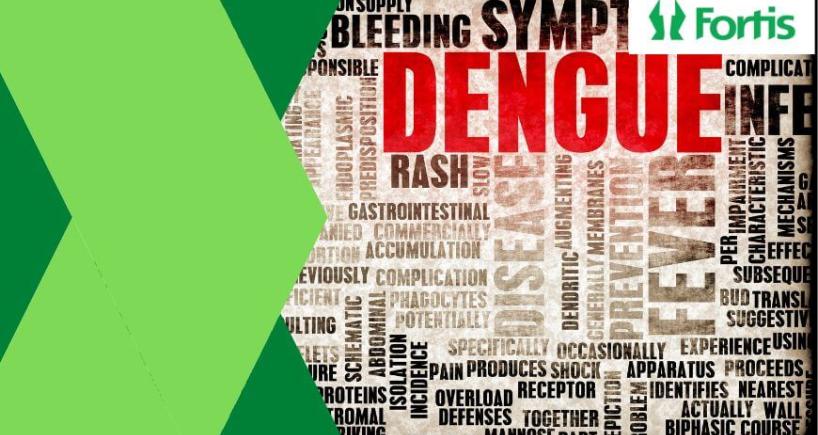
Dengue Shock Syndrome
Severe dengue is a serious illness that can cause fluid to leak from your blood vessels into your body, leading to symptoms like difficulty breathing, low blood pressure, and abdominal pain. It can also cause bleeding, liver damage, confusion, and heart problems. This illness used to be called dengue hemorrhagic fever and dengue shock syndrome.
Symptoms of Dengue Shock Syndrome (DSS)
The most common dengue shock syndrome symptoms include:
1. Shock
2. Bleeding
3. Abdominal Pain
4. Rapid Breathing
5. Altered mental status
1. Shock
This happens because of low blood pressure and poor flow of blood to the organs and tissues of the body.
2. Bleeding
People with Dengue shock syndrome (DSS) may bleed from the gums, nose, or gastrointestinal tract, or they may have bruises on the skin.
3. Abdominal pain
People with Dengue shock syndrome (DSS) may experience severe abdominal pain or tenderness.
4. Rapid breathing
Rapid and shallow breathing is a common symptom of DSS.
5. Altered mental status
People with DSS may experience altered mental status, ranging from confusion to coma.
Causes of Dengue Shock Syndrome (DSS)
The primary cause of DSS is infection with one of the four serotypes of the dengue virus. This infection can lead to a severe immune response that can cause damage to blood vessels and lead to the symptoms of DSS. Pre-existing medical conditions like heart disease or diabetes, or old age may increase the risk of DSS.
It is important to seek medical attention as soon as possible if you think you may have dengue fever or are experiencing any of the symptoms of DSS. Diagnosing it early and treating it in time can improve the chances of a full recovery.
Precautions to Prevent Dengue Shock Syndrome (DSS)
There are several precautions to reduce the risk of developing dengue shock syndrome (DSS) or prevent its progression:
1. Prevent mosquito bites
2. Seek medical attention
3. Follow your treatment plan
4. Stay well-hydrated
1. Prevent mosquito bites
Insect repellents, long-sleeved clothing, and mosquito nets or screens to keep mosquitoes out of your home.
2. Seek medical attention
If you have a fever, body aches, and other symptoms of dengue fever, seek medical attention as soon as possible. Early diagnosis and treatment can reduce the risk of DSS.
3. Follow your treatment plan
If diagnosed with DSS, follow your treatment plan as directed by your healthcare provider. This may include medications to help manage your symptoms and support your blood pressure and organ function.
4. Stay well-hydrated
Drink plenty of fluids to help prevent dehydration, as it can worsen the Dengue shock syndrome symptoms.
Risk factors involved in Dengue Shock Syndrome (DSS)
Several risk factors may increase the likelihood of developing dengue shock syndrome (DSS):
1. Infection with the dengue virus
The primary risk factor for DSS is infection with one of the four serotypes of the dengue virus.
2. Age
Children and older adults may be at higher risk of developing DSS.
3. Pre-existing medical conditions
People with certain medical conditions like heart disease, diabetes, or liver disease, may be at a higher risk of developing DSS.
4. Previous dengue infection
People who have had a previous dengue infection may be at higher risk of developing Dengue shock syndrome (DSS) if infected with a different serotype of the virus.
5. Delay in seeking medical treatment
Seeking medical attention can improve the chances of a full recovery from DSS. Delays in seeking treatment can increase the risk of complications and death.
6. Poor access to healthcare
People with limited access to healthcare may be at higher risk of developing DSS due to delays in medical treatment.
7. Mosquito control
Poor mosquito control measures can increase the risk of dengue transmission and the development of DSS.
Treatment of Dengue Shock Syndrome
Dengue shock syndrome (DSS) treatment involves supportive care to manage the symptoms and complications of the condition. This may include the following:
1. Fluids
People with DSS may need fluids through an intravenous (IV) line to help prevent dehydration and maintain blood pressure.
2. Medications
Medication helps to manage the symptoms of DSS, such as pain, fever, and nausea. These may include acetaminophen (Tylenol) for pain and fever and antiemetics for nausea.
3. Blood transfusion
In severe DSS cases, people may need a blood transfusion to replace lost blood and improve oxygen delivery to the body's tissues.
4. Oxygen therapy
People with DSS may need oxygen therapy to help improve blood oxygen levels.
5. Close monitoring
People with DSS may need close monitoring in a hospital setting to monitor vital signs and assess for any complications.
When to see a doctor?
Dengue shock syndrome is a serious and life-threatening complication of dengue fever. If you or someone you know is showing symptoms of dengue shock syndrome, like high fever, rash, nausea, bleeding, etc., it is important to seek medical attention immediately.
FAQ's
Q. Is dengue shock syndrome fatal?
While it is possible to recover from dengue shock syndrome with timely and appropriate medical treatment, it can be fatal if not treated timely.
The mortality rate for dengue shock syndrome varies depending on the severity of the case and the availability of medical care. According to the World Health Organization (WHO), the survival rate for Dengue shock syndrome (DSS) fever ranges from 1% to 5% but can be as high as 20% for severe cases.
Q. Can you recover from dengue shock?
Most people with dengue shock syndrome can recover with timely and appropriate medical treatment. But, the severity of the condition and the availability of medical care can affect the chances of recovery.
Dengue shock syndrome occurs when blood pressure drops and the body is unable to circulate enough blood to the vital organs. This can lead to organ failure and, if left untreated, can be fatal.
Q. What is the difference between dengue fever and hemorrhagic fever?
Dengue fever and dengue hemorrhagic fever (DHF) are viral infections transmitted by mosquitoes. But the main difference between dengue fever and DHF is the severity of the illness.
Dengue fever is a viral infection characterized by symptoms such as high fever, severe headache, muscle and joint pain, and rash. In most cases, dengue fever is a self-limiting illness that can be managed with rest and pain relief.
Dengue hemorrhagic fever (DHF) is a more severe form of dengue fever and can lead to serious complications like bleeding, low platelet count, and damage to the circulatory system.
Key Takeaways:
✅ Dengue shock syndrome (DSS) is a severe complication of dengue fever caused by the body's immune system overreacting to the dengue virus.
✅ Symptoms of DSS include shock, bleeding, abdominal pain, rapid breathing, and altered mental status.
✅ DSS is caused by infection with one of the four serotypes of the dengue virus and can be exacerbated by pre-existing medical conditions or delays in seeking medical treatment.
✅ Precautions to prevent DSS include protecting against mosquito bites, seeking medical attention early, following a treatment plan, and staying well-hydrated.
✅ Risk factors for DSS include infection with the dengue virus, age, pre-existing medical conditions, previous dengue infection, delay in seeking medical treatment, poor access to healthcare, and poor mosquito control.
✅ Treatment of DSS involves supportive care such as fluids and medications to manage symptoms and complications.
At Fortis Health Care, understanding the progression from symptoms of dengue in adults, which can include dengue hemorrhagic fever and dengue shock syndrome, to signs of recovery is crucial. Recovery symptoms, such as stabilization of low blood pressure, mark an improvement in the dangerous trajectory of dengue syndrome, leading towards health restoration. Trust Fortis Health Care for the treatment.
Popular Searches :
Hospitals: Cancer Hospital in Delhi | Best Heart Hospital in Delhi | Hospital in Amritsar | Hospital in Ludhiana | Hospitals in Mohali | Hospital in Faridabad | Hospitals in Gurgaon | Best Hospital in Jaipur | Hospitals in Greater Noida | Hospitals in Noida | Best Kidney Hospital in Kolkata | Best Hospital in Kolkata | Hospitals in Rajajinagar Bangalore | Hospitals in Richmond Road Bangalore | Hospitals in Nagarbhavi Bangalore | Hospital in Kalyan West | Hospitals in Mulund | Best Hospital in India | | Cardiology Hospital in India | Best Cancer Hospital in India | Best Cardiology Hospital in India | Best Oncology Hospital In India | Best Cancer Hospital in Delhi | Best Liver Transplant Hospital in India
Doctors: Dr. Rana Patir | Dr. Rajesh Benny | Dr. Rahul Bhargava | Dr. Jayant Arora | Dr. Anoop Misra | Dr. Manu Tiwari | Dr. Praveer Agarwal | Dr. Arup Ratan Dutta | Dr. Meenakshi Ahuja | Dr. Anoop Jhurani | Dr. Shivaji Basu | Dr. Subhash Jangid | Dr. Atul Mathur | Dr. Gurinder Bedi | Dr. Monika Wadhawan | Dr. Debasis Datta | Dr. Shrinivas Narayan | Dr. Praveen Gupta | Dr. Nitin Jha | Dr. Raghu Nagaraj | Dr. Ashok Seth | Dr. Sandeep Vaishya | Dr. Atul Mishra | Dr. Z S Meharwal | Dr. Ajay Bhalla | Dr. Atul Kumar Mittal | Dr. Arvind Kumar Khurana | Dr. Narayan Hulse | Dr. Samir Parikh | Dr. Amit Javed | Dr. Narayan Banerjee | Dr. Bimlesh Dhar Pandey | Dr. Arghya Chattopadhyay | Dr. G.R. Vijay Kumar | Dr Ashok Gupta | Dr. Gourdas Choudhuri | Dr. Sushrut Singh | Dr. N.C. Krishnamani | Dr. Atampreet Singh | Dr. Vivek Jawali | Dr. Sanjeev Gulati | Dr. Amite Pankaj Aggarwal | Dr. Ajay Kaul | Dr. Sunita Varma | Dr. Manoj Kumar Goel | Dr. R Muralidharan | Dr. Sushmita Roychowdhury | Dr. T.S. MAHANT | Dr. UDIPTA RAY | Dr. Aparna Jaswal | Dr. Ravul Jindal | Dr. Savyasachi Saxena | Dr. Ajay Kumar Kriplani | Dr. Nitesh Rohatgi | Dr. Anupam Jindal |
Specialties: Heart Lung Transplant | Orthopedic | Cardiology Interventional | Obstetrics & Gynaecology | Onco Radiation | Neurosurgery | Interventional Cardiology | Gastroenterologist in Jaipur | Neuro Physician | Gynecologist in Kolkata | Best Neurologist in India | Liver Transfer |







